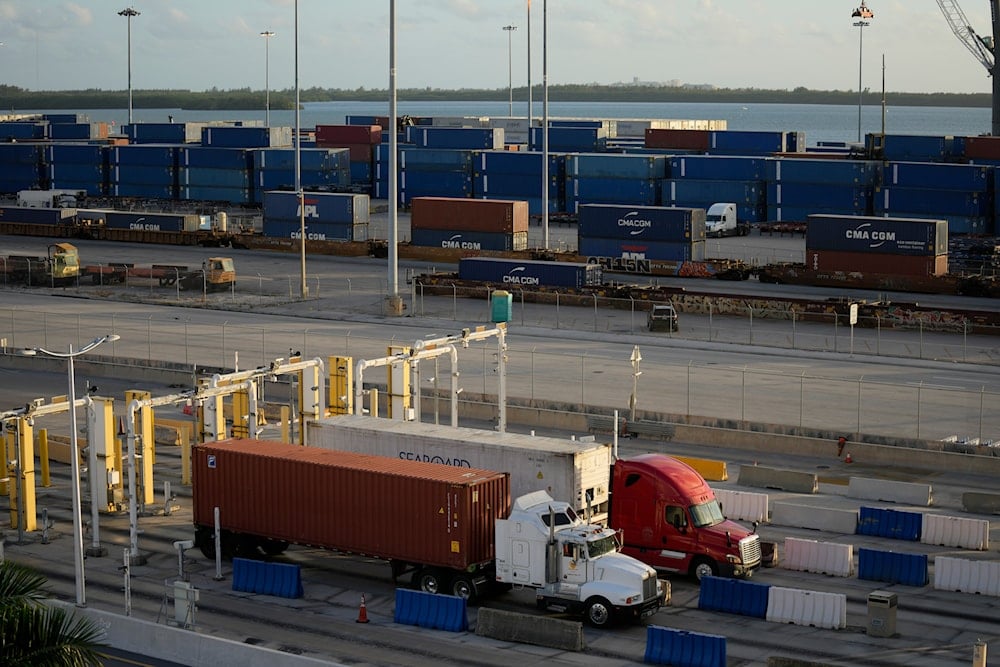US heavily reliant on China for raw materials in medicines: NYT
Nearly 700 US medicines rely on chemicals solely from China, raising alarms over supply risks amid rising tensions and potential Trump-imposed tariffs.
-

Trucks hauling containers depart from PortMiami on December 16, 2021, in Miami. (AP)
A new analysis has revealed the extent of US dependence on China for medicine, showing that nearly 700 drugs used in the United States rely on at least one chemical sourced exclusively from China, according to a report by The New York Times (NYT). The findings come as concerns mount over potential vulnerabilities in the US drug supply chain amid heightened tensions between Washington and Beijing.
Published on Wednesday by the US Pharmacopeia, a nonprofit that monitors drug quality and supply, the report identifies the origins of key chemicals used in drug manufacturing. The analysis found that China is the sole supplier of at least one ingredient in widely used medications, including antibiotics like amoxicillin, and treatments for heart disease, cancer, seizures, and HIV.
One such example is diphenhydramine, best known by the brand name Benadryl.
According to the report, experts warned that this deep reliance poses a significant risk. In the event of a future pandemic, trade conflict, or strategic export restrictions by China, the US could face serious drug shortages. Some generic drug shortages are already becoming more common, even without any geopolitical triggers.
Manufacturing these raw pharmaceutical ingredients in the US is rare due to high labor costs, environmental regulations, and low profit margins. In contrast, Chinese factories face fewer environmental constraints and can produce these materials at far lower costs.
Trump threatens tariffs on Chinese imports
US President Donald Trump recently said he would impose a 100% tariff on all Chinese imports, including potentially pharmaceutical ingredients, in retaliation for Chinese restrictions on rare-earth minerals. If implemented, the tariffs could affect raw materials critical to US pharmaceutical production.
Trump has also threatened tariffs on brand-name drugs from the European Union and other regions, up to 100%, though those plans have been delayed. According to an administration official, generic drugs would be exempt from any future drug tariffs.
Amid these tensions, many large pharmaceutical companies have announced plans to build or expand US-based facilities, citing Trump’s tariff threats and the need for greater domestic production. However, these new factories are expected to focus on the final stages of drug production, not the early stages where raw chemical inputs are used.
In turn, China's Ministry of Commerce has accused Washington of hypocrisy following Trump's announcement of a sweeping 100% tariff on Chinese imports, marking a new escalation in tensions between the world's two largest economies.
"The relevant US statement is a typical example of 'double standards'," said an unnamed ministry spokesperson, adding that recent US actions have "severely harmed China's interests and seriously undermined the atmosphere of the economic and trade talks between the two sides."

 3 Min Read
3 Min Read








